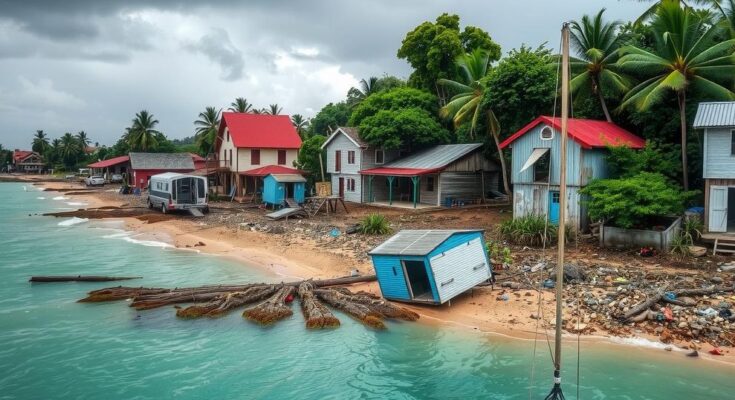Brazil has called for an increased global response to climate change following the devastation caused by Cyclone Chido in Mayotte. With hundreds feared dead, Brazil expressed condolences and solidarity while urging nations to enhance their adaptive measures in light of rising extreme weather events. The country continues to advocate for ambitious climate initiatives and international support for developing nations.
The recent devastation caused by Cyclone Chido in Mayotte, part of France’s Indian Ocean territories, has underscored the urgent necessity for global adaptation to the realities of climate change. Brazil, which currently presides over the G20 and is set to host the upcoming UN Climate Change Conference (COP30) in Belem, expressed its condolences to the victims of this catastrophic natural disaster. Brazil’s foreign ministry stated that the increasing frequency of extreme weather events demands that nations enhance their adaptive strategies to mitigate the impact of climate change.
Brazil has acknowledged the devastating toll Cyclone Chido has taken, with fears of hundreds having perished in this disaster—the most severe cyclone to strike Mayotte in nearly a century. The French government is striving to execute rescue and assessment operations in the archipelago, which hosts approximately 320,000 residents, many of whom live in vulnerable housing conditions.
The Brazilian government has expressed solidarity with the people of Mayotte and the French government, emphasizing the need for coordinated international responses to address climate challenges. Brazil is prominently advocating for more ambitious global measures to combat climate change, particularly focusing on reducing greenhouse gas emissions. Under the administration of President Luiz Inacio Lula da Silva, efforts have been intensified to combat deforestation in the Amazon, which plays a critical role in carbon absorption. Brazil has publicly committed to enhancing its greenhouse gas reduction targets and is actively calling for productive dialogues at international climate platforms such as COP29 and the forthcoming COP30 to ensure developed nations provide adequate funding for developing countries to cope with climate impacts.
Understanding the context of the climate crisis is essential to grasp the implications of events like Cyclone Chido. As climate change continues to manifest through increasingly severe weather phenomena, countries are grappling with the consequences, especially those in vulnerable regions like Mayotte. The collective push for adaptation strategies has become a cornerstone of discussions in international forums. Brazil, with its rich biodiversity and significant influence in climate advocacy, is at the forefront of these global efforts, highlighting the moral imperative to assist affected nations and secure the planet’s future resilience.
In light of the recent tragedy in Mayotte, the call for enhanced global cooperation in adapting to climate change has never been more critical. Brazil’s leadership and commitment to international climate efforts reflect a growing recognition of the need for solidarity and proactive measures in combating the adverse effects of climate change. As countries prepare for future climate conferences, the importance of funding and resources to support vulnerable nations remains paramount in achieving meaningful progress against climate threats.
Original Source: www.barrons.com




